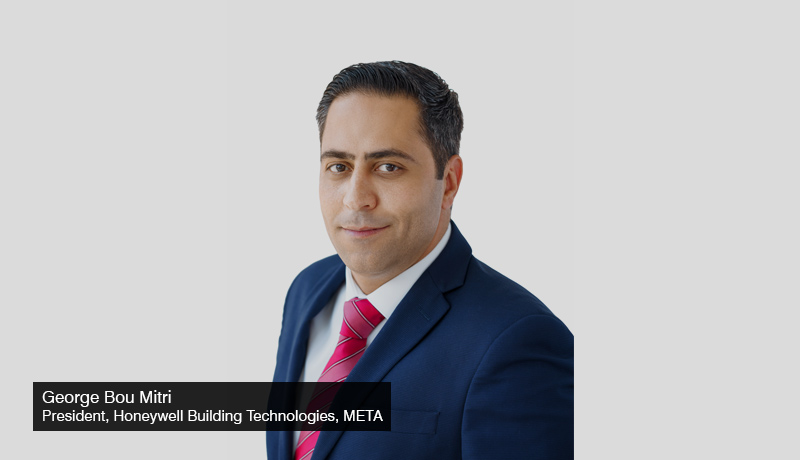
According to a Honeywell survey on building sustainability and energy management, Middle East business leaders and decision-makers regard environmental, social, and governance (ESG) efforts as a top business concern, with an emphasis on energy management and occupant safety and well-being.
“As an active ESCO in the region, we understand the challenges of driving energy efficiencies across facilities. By treating buildings as dynamic entities and deploying the right technologies, building owners and managers can achieve both goals of meeting their energy efficiency targets and creating a healthier indoor environment for their occupants,” said George Bou Mitri, president, Honeywell Building Technologies, Middle East, Turkey and Africa.
The survey of more than 300 business leaders and decision-makers in the UAE, Saudi Arabia, and Egypt found that ESG has grown in importance within organizations over the last two years, owing to a greater focus on the need for sustainability improvement, as well as an immediate requirement to support cost-efficiency improvements and occupational health and safety in the wake of the COVID-19 pandemic.
Key findings include:
Technology taking center stage in ESG initiatives:
Honeywell’s building technologies help businesses flourish by enabling smarter buildings and portfolio management, simplifying facility operations, and increasing operational and energy efficiency. Honeywell Forge corporate performance management software-as-a-service can help buildings go digital while lowering energy usage and improving operational efficiency. Honeywell Forge Energy Optimization, for example, is a proprietary, cloud-based, closed-loop technology that optimizes energy use by connecting to a building’s existing HVAC systems. This closed-loop technology works without the need for human intervention by integrating near-real-time circumstances data – such as weather and occupancy – with predictive, machine learning models that automatically compute and alter setpoints across a facility’s complete HVAC distribution system. This approach aided the first authorized smart university in the United Arab Emirate in achieving double-digit energy savings.
Honeywell is licensed to provide energy services to customers in building management through Energy Service Performance Contracting (ESPC), Energy Performance Contracting (EPC), and building retrofits in the UAE (Dubai, Sharjah, Abu-Dhabi, Ras al Khaimah) and Saudi Arabia (Dubai, Sharjah, Abu-Dhabi, Ras al Khaimah). Honeywell has performed over 6,000 EPC projects around the world, resulting in over $10 billion in assured energy and operational savings.